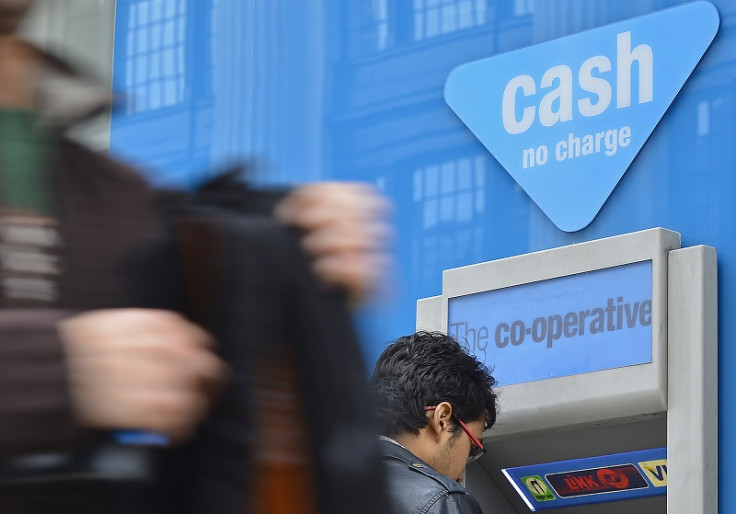Top 12 Business Stories 2013: Co-op, 'Crystal Methodist' Paul Flowers and the Black Hole

The Co-operative Group has never experienced such a tumultuous year until 2013 after analysts uncovered a black hole in its balance sheet and the police arrested its chairman for hard illegal drugs.
The Co-op Bank is one of UK's smallest lenders with 6.5 million customers and a 1.5% share of the current account market. However it is a household name in Britain, as the wider group includes supermarkets, funeral services and pharmacies.
Trouble started in May this year, after the Co-op Bank's head of banking Barry Tootell resigned after rating agency Moody's suggested that the British government may have to bailout the lender.
Moody's slashed the bank's debt rating to "junk" status, due to concerns that the lender had a £1.8bn (€2.1bn, $2.7bn) black hole in its balance sheet.
Pym and Pennycook
In June, new chair of the Co-op Bank Richard Pym revealed that the lender was working with the Prudential Regulation Authority to address Moody's concerns that the bank may need a bailout.
In addition, the Co-op Group announced its new finance director to be Richard Pennycook.
Battle Plan
Later that month the company unveiled its plan to fill the massive balance sheet black hole. The bank said the comprehensive plan was designed to provide stability to the beleaguered bank and was expected to generate £1bn in 2013 and £500m in 2014.
Second Warning
Moody's slashed the Co-op Bank's credit rating again and said a default on its debt was imminent despite its £1.5bn recapitalisation plan. Moody's said its downgrade reflected "the imminence of Co-op Bank's default on its junior debt alongside the lack of clarity on the implications for the bank's future standalone strength given (1) the uncertainty over whether the proposed liability management exercise with junior creditors will achieve the forecast level of recapitalisation."
"... (2) the execution risks that the entirely new senior management structure will face in completing the significant, far-reaching restructuring that the bank will need to undertake over the course of several years." But the Co-op brushed off Moody's announcement.
Big Pre-Tax Loss
The bank posted a £709.4m pre-tax loss in its opening six months of 2013. The loss, down from a £58.6m loss in the same period a year before, stemmed largely from a £496m impairment charge against the carrying value of the bank's loans, as well as a £165.5m write-down of IT assets and another £61m set aside to compensate customers for things such as PPI mis-selling.
Compensation Pot Boost
In October, the lender boosted its mis-sold payment protection insurance compensation pot by £100m following revised expectations on redress pay-outs.
Len Wardle Quits
The Co-op group's chairman Len Wardle announced his to step down in May 2014, but actually ends up leaving in November.
Job Cuts
In November, the Co-op group said it would axe more than 1,000 jobs at the Co-op Bank in a final bid to overhaul its business and finances.
Paul Flowers
Allegations of buying drugs emerged against Paul Flowers, a former chairman of the Co-op Bank. He is later arrested in November by West Yorkshire Police who said the arrest was "in connection with an ongoing drugs supply investigation".
Customers Leave
The Co-op released a statement outlining that the bank had lost current account customers as a result of the allegations against Flowers and that competition from other banks, and the introduction of seven-day account switching may have contributed "to an increase the bank has seen in the switching out of current accounts".
© Copyright IBTimes 2025. All rights reserved.






















